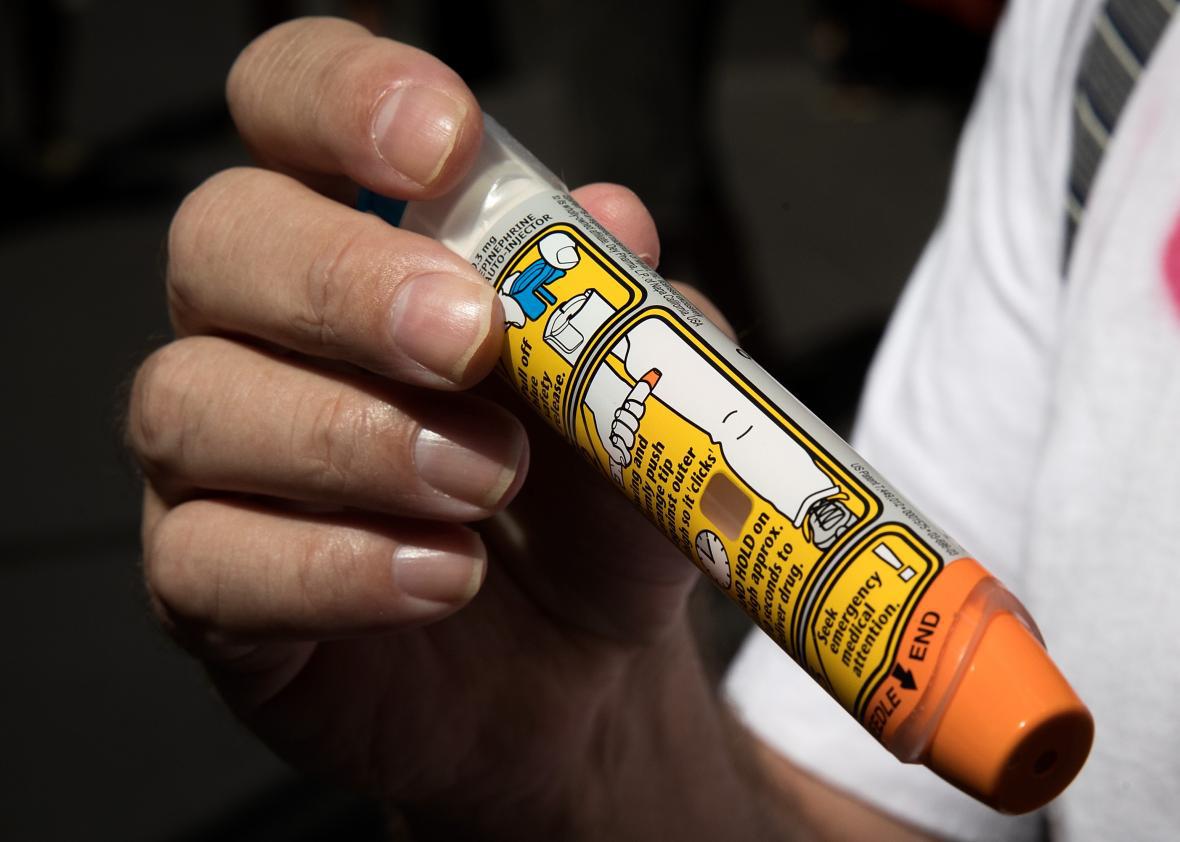Hillary Clinton already had a plan to lower prescription drug costs. In fact, it was one of the first pieces of her agenda that she rolled out. But following the furor over Mylan’s decision to increase EpiPen prices by some 500 percent, her campaign has released a new proposal specifically aimed at stopping “unjustified” price spikes on pharmaceuticals. And it’s surprisingly bold.
Here’s the major idea: As president, Clinton would create a task force of regulators with the power to decide whether price increases on old, essential medicines and devices were reasonable given product improvements and the amount of competition in the market. If not, the task force would have the power to mete out punishments to companies that were trying to profiteer, potentially with fines. As the fact sheet states:
In cases where there is a price spike and a lack of competition for a lifesaving treatment that has long been on the market, Hillary’s plan will enable the ability to fine or increase rebates from drug companies who are excessively raising prices. Revenue or savings from these penalties could be used to support the aforementioned new programs to make lowercost, effective alternatives available, and speed up approvals that will lead to greater competition.
This might not sound particularly dramatic at first, but it would represent a serious shift in Washington’s relationship with the pharmaceutical business. The United States is basically alone among developed countries in that it largely lets drugmakers charge whatever the market will bear. Democrats, including Clinton, have long wanted to allow Medicare to negotiate pharma prices, which it currently can’t. (Donald Trump is in favor of this, as well.) But it sounds like the committee Clinton is imagining would have power over what companies can charge anybody. The body wouldn’t officially be able to set prices on long-available drugs, but its ability to slap a financial penalty on the next company that jacks up the cost of a 20-year-old medical implement or pill would come pretty darn close.
The ability to impose fines would require an act of Congress, so all the usual caveats about conservative legislative obstruction apply. Still, Clinton is subtly sending the message that she’s comfortable moving toward a more European system in which regulators have a direct say not just in what drug companies can charge the government, but what they can charge the rest of the public, too.
